For eleven days in September, each and every year since 1976, my beloved city of Toronto is transformed into a cinephile mecca. Stars and regular folk from far and wide attend the Toronto International Film Festival for hundreds of movie premieres, many of which go on to be the very films discussed incessantly during awards season (This year’s Hamnet will most certainly be a Best Picture frontrunner).
My goals during TIFF are slightly unorthodox: all those huge premieres? I have no issue waiting a few months - hell, even a couple days, in some cases - to pay half what it costs at the festival and see them when they release worldwide. Instead, I make an effort to see movies I would have never otherwise had the chance to see; movies that would never make it to my local Cineplex due to their niche appeal or foreign origin.
In recent years, I’ve lucked out and seen some of my favourite films by taking a chance on something I had never heard of before (Julie Keeps Quiet was last year’s standout). TIFF opened the floodgates to me this year, bombarding me with incredible film after incredible film, making all the late nights and exhaustion at work worth it. I’ve ranked each film, and though there were a few less impressive offerings, this was most certainly my best time at the festival yet. My bottom six are as follows, with the top six featured here!
12. The Currents

This is exactly what a TIFF detractor would assume all TIFF films to be: pretentious, monotonous, and obnoxious. The Argentinian film’s opening moments show a hint of promise that’s never to be seen again: our protagonist, Lina (Isabel Aimé González-Sola), is seen winning some kind of corporate award in Geneva, and then, once alone, we see her casually nudge the award into the washroom trash. It’s an act that says so much about a character with no words and only seconds of screentime; it’s hard to believe the rest of the film has such trouble making much else of her.
The loose premise goes that Lina, following a self-inflicted dip into icy Swiss waters, now has a nasty case of hydrophobia. This has caused some strain with her husband and young daughter, the former of whom grows increasingly concerned with her mental state. Much of the film sees Lina meander from one location to another, attempting to deal with her condition and return to a sense of normalcy. The problem is that, well, Lina isn’t particularly compelling, nor is she especially likeable. While it’s hard not to sympathize with her anguish that clearly goes far deeper than a simple fear of water, her decision-making is often selfish and self-destructive to a frustrating extent. When she finally confronts the root of her malaise, it’s simplistic while somehow also being affected and cryptic, accompanied by a sequence that feels straight out of a student art film. Nothing rings true, and the path to get there was filled with tedium and irritation. All but a sliver of the initial potential ends up lost at sea.
11. Karmadonna
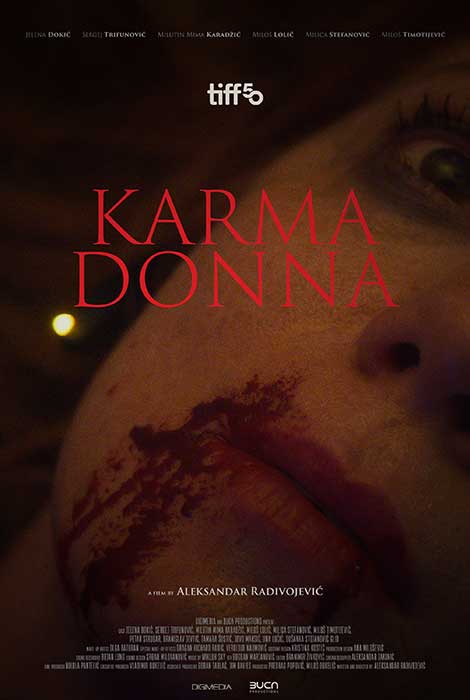
Despite being slightly more enjoyable, there was never potential for Karmadonna to be good. For god’s sake, it’s written by the dude who wrote A Serbian Film! I did think that the movie would at the very least be fun - which it is, on far too rare occasion.
The premise, at least initially, is that Jelena (Jelena Djokic) is a very pregnant woman who’s elated to be having her first child. She receives a call from an unknown number who claims to be the “creator of content”, a god - literally Buddha, as a matter of fact. He promptly proves that he isn’t some prankster by possessing a nearby child and forcing him to run full-speed at a tree. Buddha demands that Jelena kill some people he doesn’t like because, uh…societal moral decay, or something? The film’s politics fall somewhere between trite both sides-ism and the ramblings of a 14-year-old edgelord who just learned about modern philosophy. Jelena’s story is frequently interrupted by baffling sequences that take place in a televised mental institution in which Buddha’s son (what?), who is, of course, Kurt Cobain’s brother (huh?), is the subject of a popular reality show/soap opera exploiting the mentally ill.
If you’re expecting heaps of tasteless gore, you’ll be endlessly disappointed by scenes that drag on forever and end with shockingly tame bouts of bloodiness. The director/writer, Aleksandar Radivojevic, warned the audience before the premiere: “watch out for the last 40 minutes!” I, and the largely comatose audience (at a midnight screening, no less), waited patiently for a bloodbath that would never come. The end does feature some vapid violence, sure, but it’s all executed so shoddily. Never have practical effects felt so…impractical and unreal. Can I really call this a disappointment, though, when I, of supposedly sound mind, signed myself up to see a movie from anyone associated with A Serbian Film? Maybe that’s my own mistake.
10. Diya
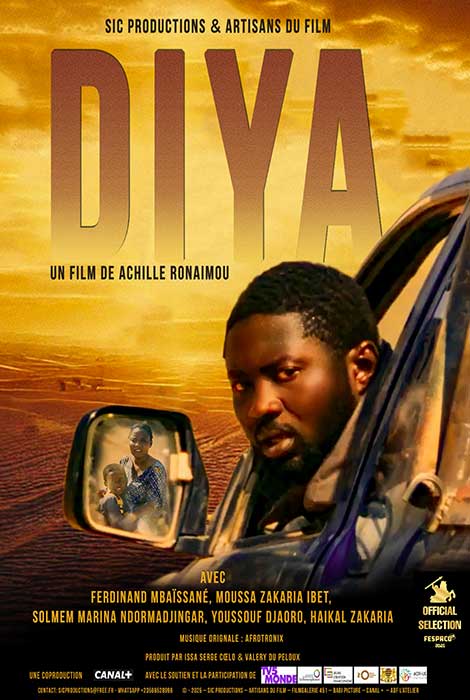
I take Diya to be more of an inadvertent educational film than one that’s compelling on its own terms. The movie hails from the African nation of Chad, a massive country that I know startlingly little about. Chad does not have a particularly robust filmmaking system, so it’s rare that any Chadian films ever make their way across the Atlantic. Unfortunately, this also means that there aren’t very many trained actors residing in Chad, which results in Diya featuring performances that lack the urgency that the plot requires.
Dane, a normal man with a normal office job, suddenly upends his comfortable life when he accidentally hits a child with his car. While he does his best to save him, it’s no use and the child’s family hosts a funeral the next day. That’s not the end of it for Dane, though: rather than sending him to prison, the victim’s family is willing to settle the matter monetarily through a legal process known as Diya. Dane needs to come up with 5 million francs within a couple weeks, or else his wife and soon-to-be-born son will be put in mortal danger.
What this should result in is a relatively by-the-numbers frantic thriller about a man who will do anything to save his family. It wouldn’t be reinventing the wheel, but it could’ve been entertaining in a unique setting. Sadly, Diya limps through attempt after attempt for Dane to acquire the cash through all the most blandly legal methods; it’s almost like the film is avoiding being exciting on purpose. In the last 15 minutes, Diya finally shifts gears and becomes the crime thriller that the premise requires - it’s not quite too little, too late, but it’s also not enough to make for a wholly entertaining movie. The real appeal is in experiencing Chad and its culture, all of which is illuminating without necessarily being the film’s intention. Is Diya worth it just for that? I’m unsure.
9. Eagles of the Republic
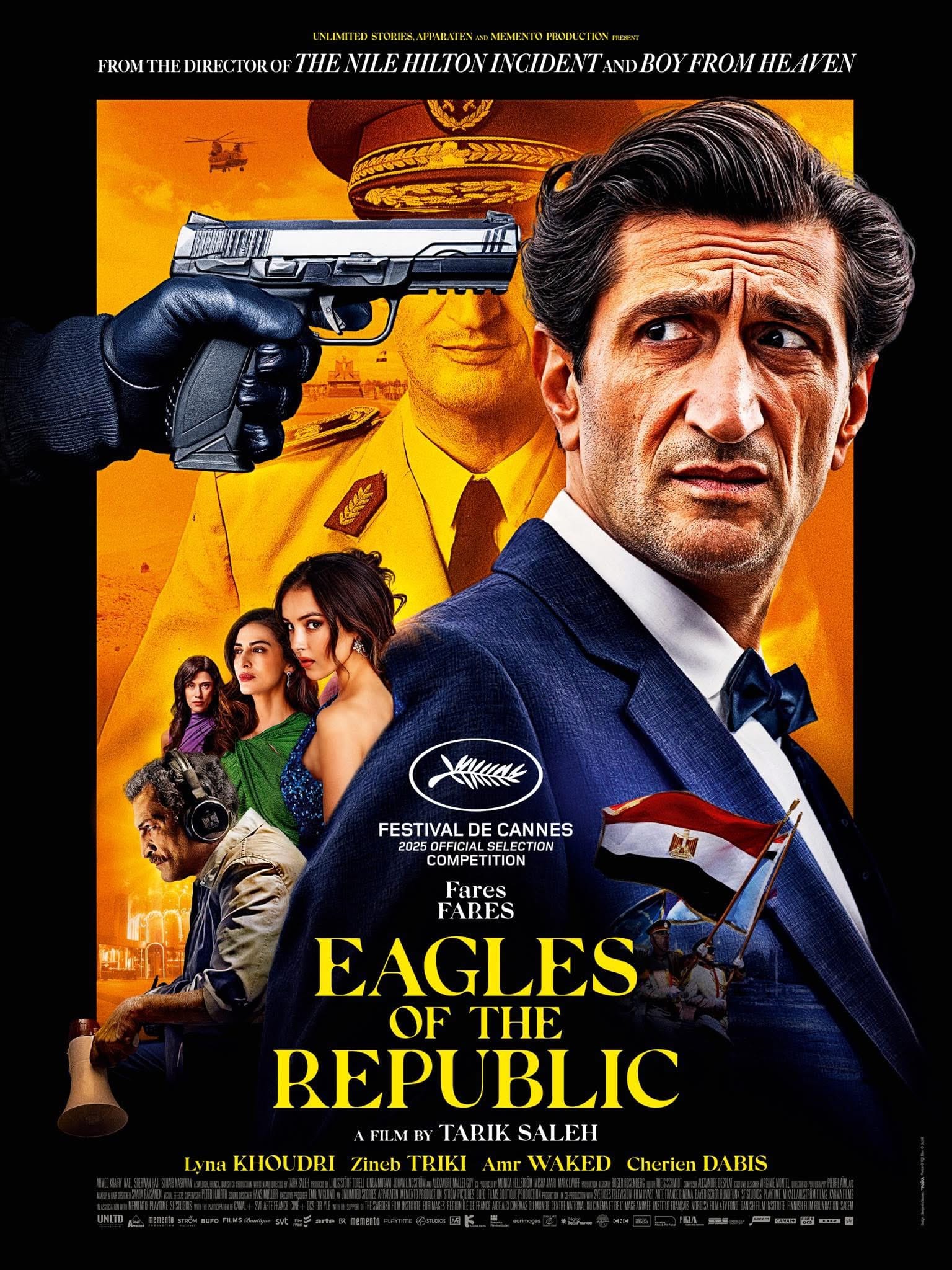
This movie stars Fares Fares, brother of Hazelight Studios’ Josef Fares! There’s my connection to video games for this article, staying true to GamingTrend’s namesake!
Eagles of the Republic is a competent political thriller set in the corrupt world of Egyptian politics. We follow George (Fares), an aging movie star who’s coerced into starring in a propaganda film for the Al-Sisi regime. While he’s initially resistant to the production’s strict adherence to revisionist history to make the president look better, he slowly realizes that working within their constraints is the only way to keep himself safe - and he may even have access to some favours as a thank-you. Things escalate when the favours run out and his friends are put in danger, landing him smack-dab in the middle of a plot far, far larger than himself.
While the post-screening Q&A with director/writer Tarik Saleh made it clear that the intention was to keep George likeable despite his obvious flaws, I don’t think it worked. He’s rather pathetic, whether it be his ready capitulation or his flagrant adultery, and I couldn’t muster any enthusiasm for his success. He also lacks any agency - which is very much the point - but it leaves him feeling inessential in a movie ostensibly about him. Eagles, like Diya, takes far too long to become the political thriller it was meant to be, though it is enthralling once the abrupt tonal shift eventually happens.
Tarik himself comes from an Egyptian/Swedish family but has lived in Sweden since 2015, unable to return to Egypt due to his outspoken criticism of President Al-Sisi. He detailed the ease with which he was able to make the film in spite of this restriction - “corruption is not a bad word in Egypt”, he says. He insinuated that all he had to do was line the right pockets and it was astonishingly easy to make a film about the tyranny of the current government…with the direct help of the current government. Most hilariously, he stated that Egyptian leaders will be less angry that this movie exists due to its political stance, and more angry that their pockets weren’t the ones being lined. The making of this movie about making a movie is more interesting than the movie made.
8. Monkey in a Cage
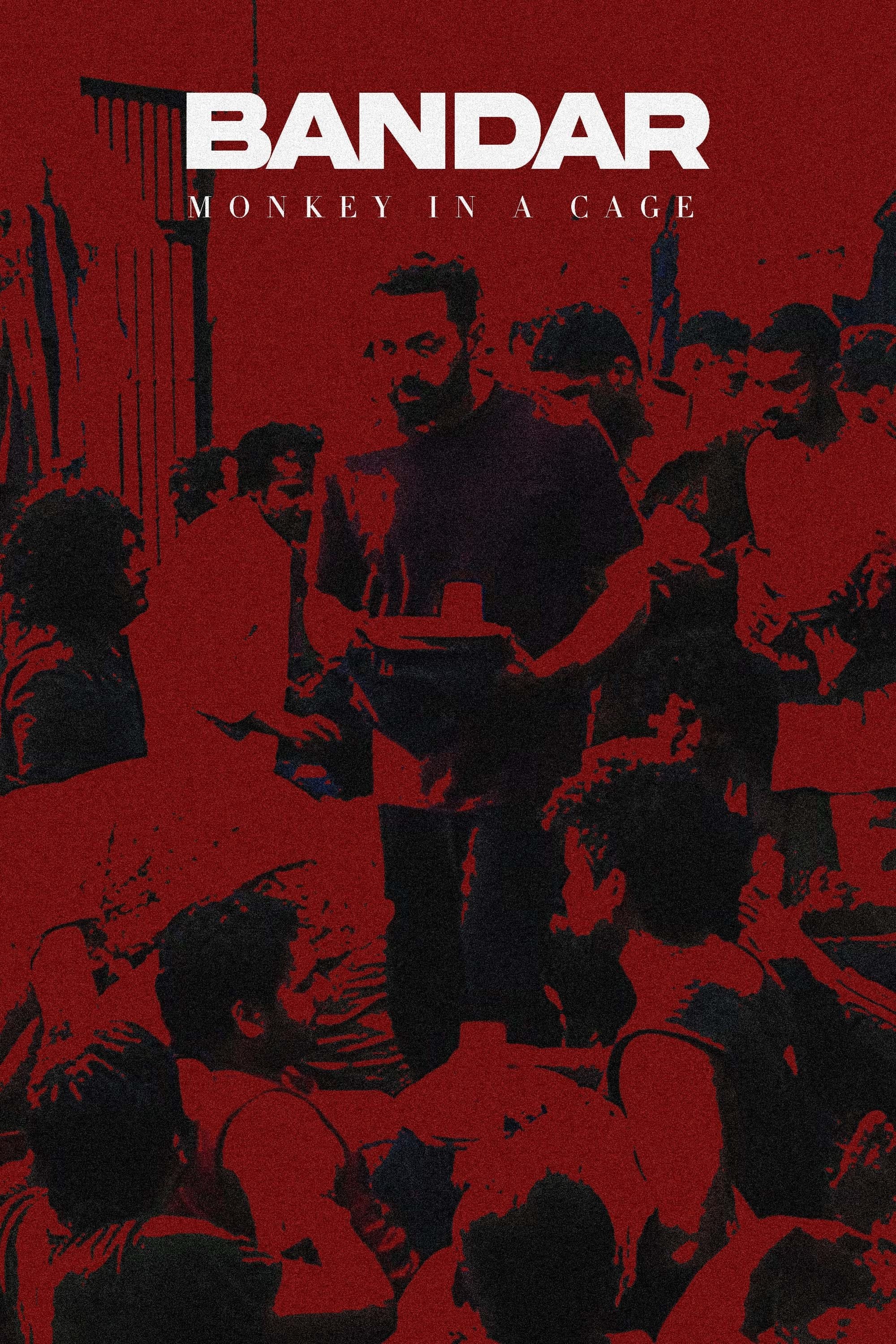
Monkey in a Cage comes so close to greatness but falters when it comes time to drive its point home. The Indian film revolves around Samar (Bobby Deol), a washed-up one hit wonder who’s accused of rape by a woman he claims to barely know. With few questions asked about the validity of the accusations, he’s whisked away to jail while he awaits trial. There, he has to endure rough conditions and isolation due to the nature of his alleged crime, all while trying to find a way to clear his name.
Though it may not seem like it, the movie is thematically similar to Anatomy of a Fall - both interrogate the legal procedures involved in the criminal systems through the lens of the accused. Anatomy of a Fall’s brilliance, though, is in its commitment to its own concept, never revealing the truth of the case and leaving the viewer to grapple with the other truths exposed in the process. Monkey in a Cage comes so close to doing something similar - but alas, can’t help itself. While the system of guilt until proven otherwise is criticized in a highly effective manner, the plot plays out with less focus.
The reveal of Samar’s innocence plays out with a lack of authenticity, jarringly shifting from the present to flashbacks of the events leading up to the supposed assault. The accuser is portrayed as some kind of unhinged stalker, a woman with no motivation but to destroy Samar’s reputation after he rejects her advances. While India’s policy on rape accusations certainly has its flaws, resorting to what often comes off as misogyny is decidedly the wrong way to address the issue.
The Q&A with director Anurag Kashyap made it clear that he is a rather liberal guy, and I don’t necessarily believe he intended to say don’t believe all women, but I do feel like the film comes across uncharitably. The film’s prison-set scenes are uniformly excellent and Bobby Deol’s performance is stunning, so this is worth seeing despite its questionable representation of serious matters.
7. JUNK WORLD
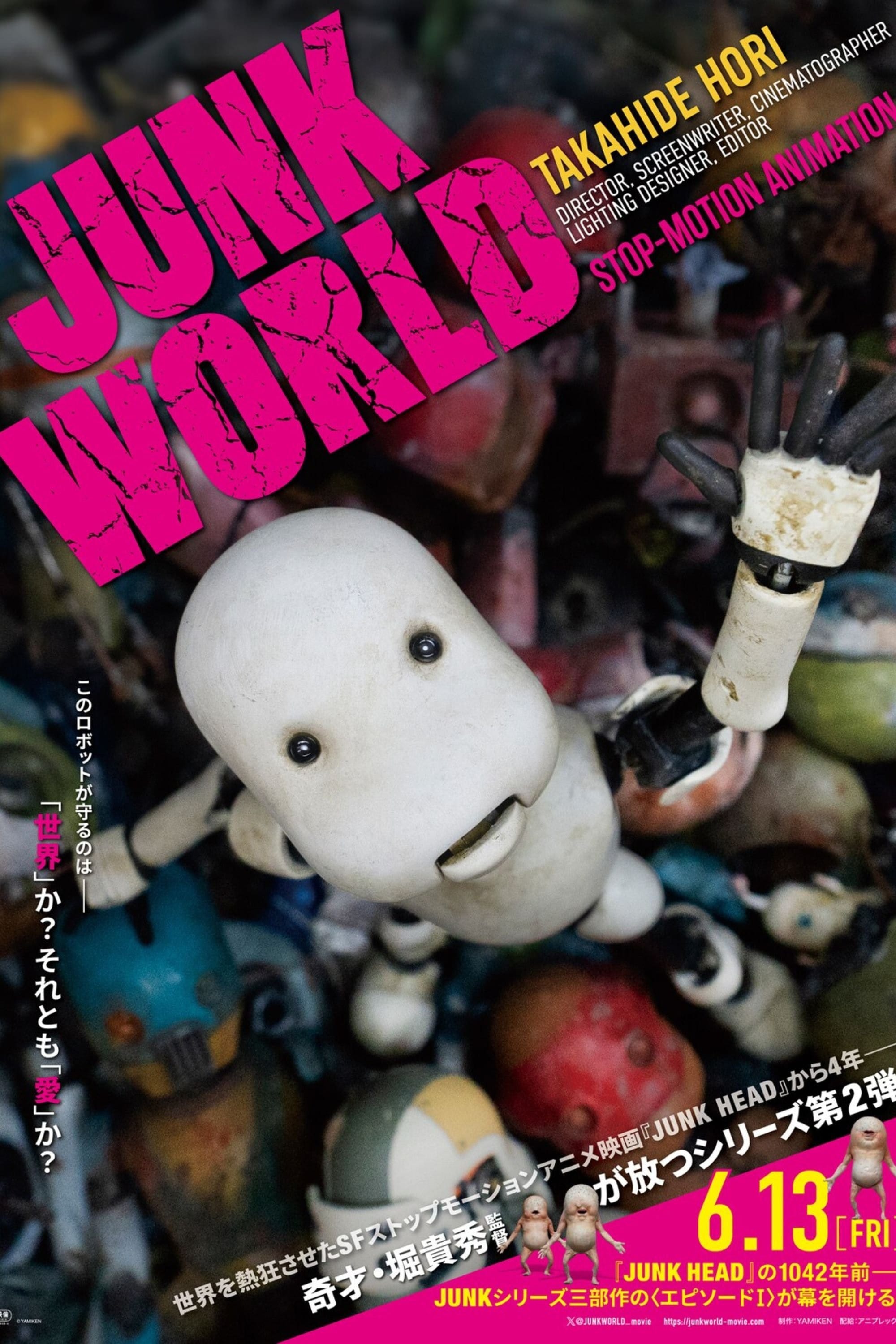
There is a floor to how bad a stop-motion movie can be; at the very least they’ll be incredible to look at and to appreciate for all the painstaking work that went into them. JUNK WORLD is no exception: it’s a sequel to the Japanese film JUNK HEAD from 2017, itself an adult stop-motion animated sci-fi horror comedy made by just three (!) people, led by director Takahide Hori. JUNK WORLD proves Hori to be an absolute sellout as he doubles his team to six this time around - though during the Q&A he jokingly/not jokingly told the audience that all his staff had left him since he couldn’t afford them anymore.
The movie takes place about a thousand years prior to the first entry in the planned JUNK trilogy. JUNK HEAD established a world that felt rich with lore and history but never lingered on the details; JUNK WORLD is downright dense with exposition in comparison. This plot-driven time travel oddball action-comedy follows a dysfunctional group of robots, humans, and Mulligans (man-made sentient creatures meant to continue the human race now that they’re incapable of reproducing) as they flee from the wreckage of an airborne military base. A Mulligan cult is hunting them down, and they need to find a way to survive - or stop the attack from having happened in the first place.
There is not a moment of JUNK WORLD that’s remotely predictable. One moment you’re watching established characters wax philosophical in a cavern, the next - a robot is starting a society of adorable naked pig-like beings in order to send one back in time in a mech suit to save its master. While undoubtedly overcomplicated and at times repetitive, JUNK WORLD stays entertaining with a charming sense of humour and an obvious self-awareness. The creativity of the miniatures and the gorgeous architecture elevate the film, sure, but Hori’s singular vision is enough to make JUNK WORLD alluring enough in its own right.





















